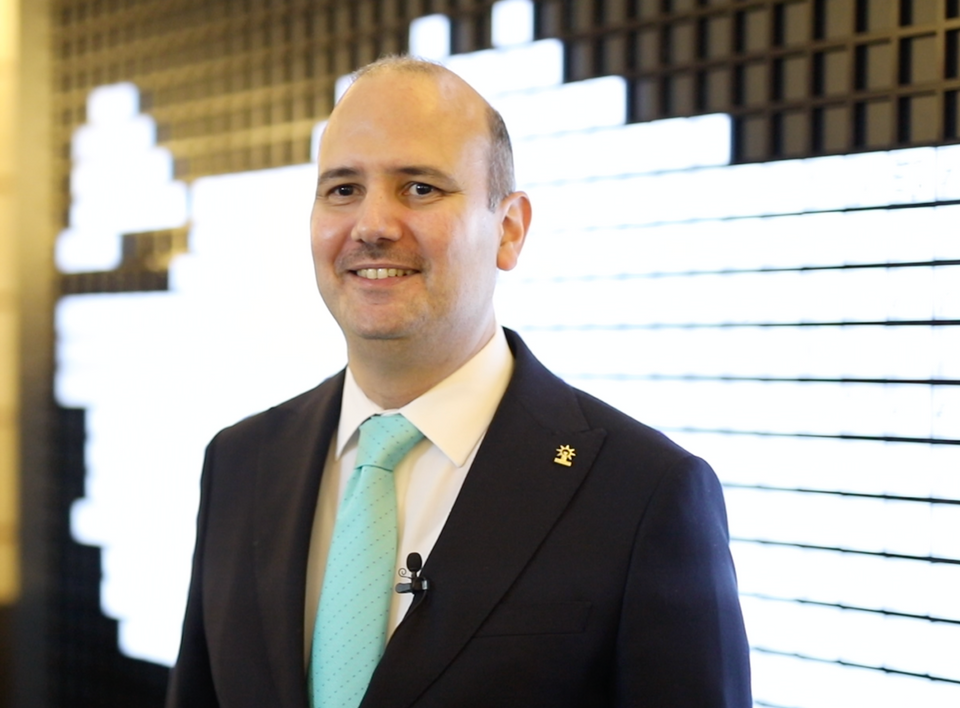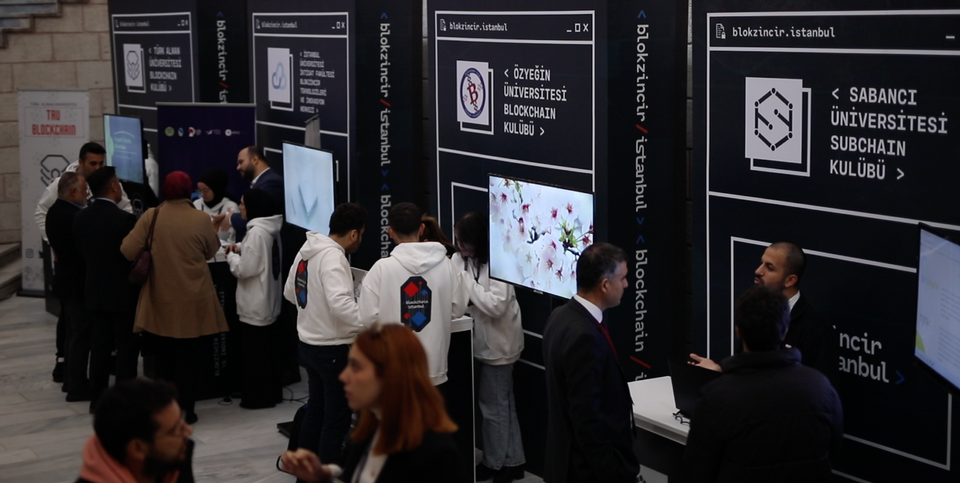Türkiye to adapt blockchain growth with its ‘result-oriented’ work culture
TRT World spoke with the AK Party’s deputy chairman during the government’s blockchain summit at Istanbul University, which focused on how Türkiye can leverage blockchain technology.
On October 21, Istanbul University hosted the ruling AK Party’s blockchain summit, where speeches by Turkish President Recep Tayyip Erdogan, along with a panel of international experts from various fields, touched on the possibilities for Türkiye to exploit blockchain technologies.
Since its conceptualization in 2008, blockchain first gained widespread recognition as the infrastructural backbone behind cryptocurrencies such as Bitcoin. But the use case for blockchain is now being implemented in various industries, from education and finance to digital governance and agriculture.
TRT world spoke with the summit’s first speaker, AK Party Vice Chairman and Head of Information and Communication Technologies, Omer Ileri, who believes that blockchain will “open up new opportunities” for the country and that the time has come to transfer Türkiye’s achievements in the defense industry to the civilian realm .
“We think Türkiye has the potential,” Ileri said. “We have the youth, a result-oriented and flexible work culture”.
He highlighted that the applications go beyond just crypto and how various other sectors can benefit from blockchain solutions. “It will have an impact on logistics, supply chain technologies, fintech [financial technology]and even healthcare,” Ileri said, adding that the summit was part of public outreach on new disruptive technologies like blockchain.
“The purpose was to convey the message to the public that [Türkiye has] the potential to make great strides in this area, and to do that, we need to increase public awareness and public ownership.”

AK Party Deputy Chairman and Head of Information and Communication Technologies Omer Ileri believes that blockchain will offer Turkish industries a wide range of opportunities to take advantage of. (Burak Catakli/TRTWorld)
The importance of regulation
When it comes to crypto, Türkiye is among the fastest growing markets in the world, as Chainalysis’ 2022 Global Cryptocurrency Adoption Index reveals that Türkiye is among the top 20 countries in terms of crypto adoption.
Along with a significant base of crypto investors, the local community consists of university clubs, Web3 startups, blockchain developers and academics.
The country has hosted important events such as Blockchain Economy Istanbul and Istanbul Blockchain Week, and aims to achieve more.
Meanwhile, there have been indications that the government has taken active steps towards blockchain adoption.
In 2019, Turkish authorities announced plans for a national blockchain infrastructure, along with a detailed roadmap for the blockchain-based central bank digital currency (CBDC), the digital lira.
Around the same time, the financial watchdog Capital Markets Board of Türkiye announced plans to design a regulatory framework for cryptocurrencies, which until then had escaped scrutiny. After an extraordinary cryptocurrency boom since the pandemic began, regulatory scrutiny quickly came into effect in April 2021, shortly before two Turkish crypto exchanges went bust.
While a payment ban was legislated for the use of crypto for goods and services, investment is still allowed. Expectations are that a tax regime will be drawn up to cover crypto transactions and assets in the near future.
And for Turkey’s nascent blockchain ecosystem to thrive, it will need laws that protect consumers but don’t stifle innovation, a balance that Ileri is keen to ensure. “To ensure that the blockchain system flourishes in Türkiye, we must have the relevant regulations in place,” he declared.
Ileri also noted that the government has really mobilized resources to establish startups (which covers blockchain startups), putting in place a number of programs ranging from direct funding opportunities to indirect tax-based incentives that businesses can take advantage of.
“Going forward, government offices are very aware of these upcoming opportunities, and I believe that relevant regulations and incentive programs will be put in place in the future.”
Jason Allegrante, Head Regulatory Counsel and CCO at Fireblocks, said that when it comes to institutional adoption, it is crucial whether Türkiye can “design a place with driving rules for businesses [and] for entrepreneurs to come in and build these blockchain businesses”.
Allegrante told TRT world he believes that Web3 – the next version of the internet that uses blockchains, crypto and NFTs – will be a “big way forward for a country like Türkiye”.
Growth of Blockchain Clubs
There is a strong belief that Turkey’s tech-savvy youth will give the country a competitive edge in the global blockchain race.
While at the summit, several booths showcased blockchain clubs from universities across the country staffed by enterprising and enthusiastic students. A key activity these clubs are involved in is public education around blockchain and crypto.
One of them, the Turkish-German University Blockchain Club, was started in March this year and has over 200 members.

Numerous blockchain clubs have sprouted up across Turkish universities, and are involved in public education around blockchain and crypto. (Burak Catakli/TRTWorld)
One of the club’s members, Sude Nur Ceylan, a student in the economics department, said they organize events on campus to explain what blockchain is, “because everyone thinks blockchain is bitcoin – but it’s not,” she said TRT world. “So we want to explain that to people.”
As students begin to gravitate toward experimenting with blockchain solutions, one initiative the Turkish-German University Blockchain Club is involved in is a “waterless agriculture project,” which uses blockchain technology by using sensors to gain more information about plants.
Ceylan said they would look to advance the project by next summer.
Just before the national blockchain summit, President Erdogan unveiled a blockchain-powered project called the e-Human portal, which would act as a digital service point for the Turkish presidency to share data related to its services and tools regarding career, distance education and talent acquisition.
The portal will give students, recent graduates and public employees access to job and internship opportunities in the public and private sectors, certified training for public employees, career fairs, events and educational content.
Earlier this year, Turkey’s national car company TOGG announced a strategic partnership with Avalanche blockchain developer Ava Labs to develop safe and fast smart contract mobility services.
Source: TRT World


